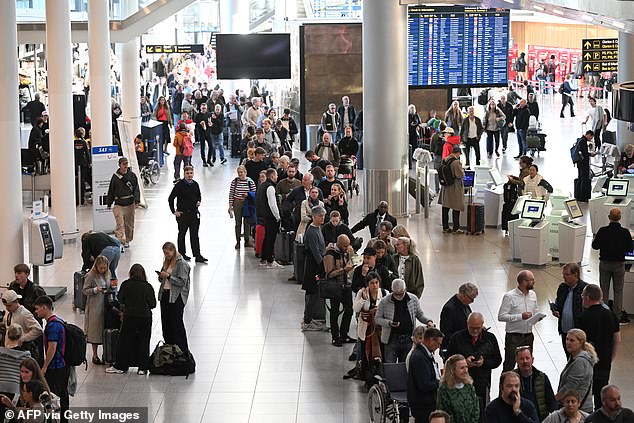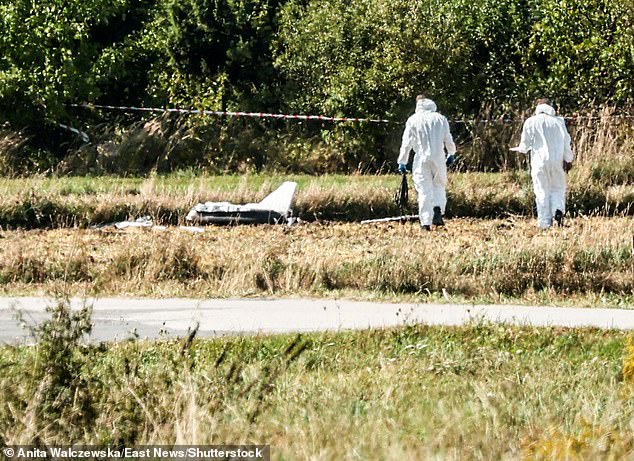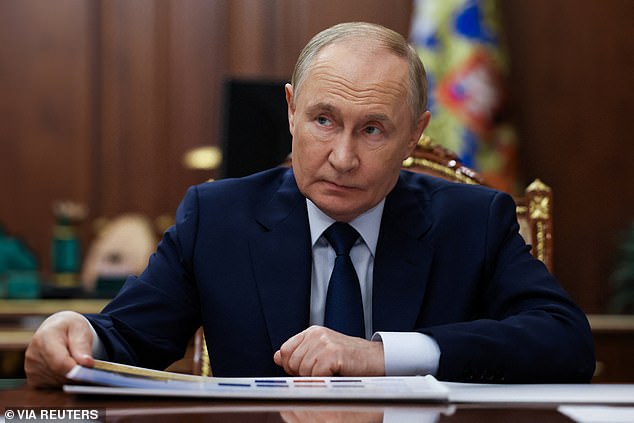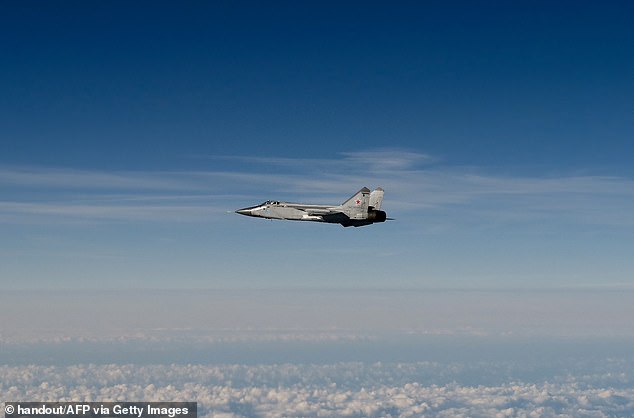Denmark Grapples with Drone Sightings Amidst European Security Concerns
Denmark is on high alert following a surge in reported drone sightings, sparking fears of escalating tensions and prompting discussions about bolstering European security. Over 500 potential drone sightings have been logged by the public within a 24-hour period, adding to anxieties already heightened by recent aerial disruptions.
-
Airport Disruptions: The incidents began earlier this week with drone incursions that led to the temporary shutdown of two Danish airports. Officials have characterised these events as a "systematic operation" and a "hybrid attack," raising serious concerns about the nature and intent of these aerial intrusions.
-
Previous Incidents: These recent disruptions follow a similar event just days prior, when drone activity interfered with operations at Copenhagen Airport. Approximately 100 flights were affected, leaving an estimated 20,000 passengers stranded.

Authorities are actively investigating the incidents to determine the responsible parties, with speculation focusing on a "professional actor" orchestrating the attacks. In the meantime, Danish citizens are urged to remain vigilant and report any suspicious aerial activity, providing detailed descriptions to assist in the ongoing investigation.
European Response: A "Drone Wall" and Heightened Alert
The situation in Denmark has triggered a broader European response, with ministers urgently exploring plans for a continent-wide "drone wall." This initiative aims to counter aerial incursions and address vulnerabilities in European airspace amid rising tensions between Moscow and NATO.
-
Summit in Brussels: Key nations, including Denmark, Finland, Poland, and the Baltic states, are joining Ukraine at a summit in Brussels to discuss strategies for strengthening European defense capabilities. European Commission President Ursula von der Leyen has described these efforts as "the bedrock of credible defense."
-
Joint Systems: The focus of the Brussels meeting is expected to be the development of joint systems for detecting and neutralizing drones that pose a threat to both civilian and military infrastructure.
-
Funding the Initiative: The European Commission has suggested that the proposed "drone wall" could be financed through its €150 billion Security Action for Europe loans scheme.
Danish Defence Minister Troels Lund Poulsen emphasized the systematic nature of the drone activity, noting that multiple airports were targeted simultaneously. He stated, "There can be no doubt that everything points to this being the work of a professional actor when we are talking about such a systematic operation in so many locations at virtually the same time." He further described the situation as a "hybrid attack using different types of drones" and an "arms race against time" due to rapid technological advancements.
Prime Minister Mette Frederiksen has engaged with NATO Secretary General Mark Rutte to address the "serious situation related to drones over Danish airports." Rutte affirmed that "NATO allies and Denmark are working together on how we can ensure the safety and security of our critical infrastructure."
Challenges in Drone Detection
Officials acknowledge the significant challenges associated with detecting and countering drone threats. Commission spokesman Thomas Regnier highlighted the difficulty in identifying these small, technologically advanced devices, stating, "We're not talking about big fighter jets and planes coming in. No, we are talking about the latest technology developments. These drones have to be detected, and then, second track [will be to decide] what will we do to fight back against these drones."
Suspicion of Russian Involvement and Denials
Police in Denmark are investigating the possibility that some of the drones were launched from ships off the coast, with reports of two Russian vessels present in the area during the incidents. However, the Russian embassy in Copenhagen has dismissed any suggestions of involvement as "absurd" and described the events as a "staged provocation" intended to escalate tensions.
Justice Minister Peter Hummelgaard has warned that "the threat from hybrid attacks is here to stay" and characterized the recent events as "deeply worrying incidents across Europe." He announced that new legislation would grant infrastructure owners the authority to bring down drones themselves.


Escalating Tensions and Warnings of Conflict
Amidst the ongoing debate over European defense strategies, Polish Prime Minister Donald Tusk has issued a stark warning, stating that "the situation brings us the closest we have been to open conflict since World War Two." He affirmed Poland's commitment to defending its airspace, declaring, "We will take the decision to shoot down flying objects when they violate our territory and fly over Poland - there is absolutely no discussion about that."
Earlier this month, Poland shot down three Russian drones that crossed into NATO territory, marking the first instance of such action since the full-scale invasion of Ukraine began in 2022. Tusk emphasized the need for caution in ambiguous situations, highlighting the importance of allied solidarity in responding to potential provocations.
Moscow has underscored the potential for escalation. Alexey Meshkov, Russia's Ambassador to France, cautioned that shooting down Russian planes "would be war." He denied Russian involvement in the drone attacks, claiming, "Russia doesn't do that, play with anyone. It's not really our thing." He accused the West of having "fooled" Moscow "on many occasions."
Russian Foreign Minister Sergei Lavrov, speaking at the G20 foreign ministers summit, accused NATO and the EU of waging a "real war" on Russia through their involvement in the crisis in Ukraine.
Broader European Concerns
The sense of crisis has spread across Europe, with Estonia reporting incursions by Russian fighter jets and Romania reporting a drone strike on one of its border areas. European officials view these actions as deliberate provocations aimed at destabilizing NATO. With peace efforts stalled, there are growing fears that the conflict in Ukraine could spill over into neighboring countries.

The United Kingdom has also taken steps to monitor Russian naval activity, dispatching HMS Iron Duke and a Wildcat helicopter to shadow a Russian frigate and cargo ship transiting through the English Channel. Defence Minister Luke Pollard emphasized the Royal Navy's commitment to safeguarding UK waters and undersea cables, as well as deterring Russian aggression in support of NATO allies.
Across Europe, officials believe that the Kremlin is pursuing a strategy of calculated risk, staging incidents that fall short of outright attacks but nonetheless compel NATO to respond.


No comments:
Post a Comment